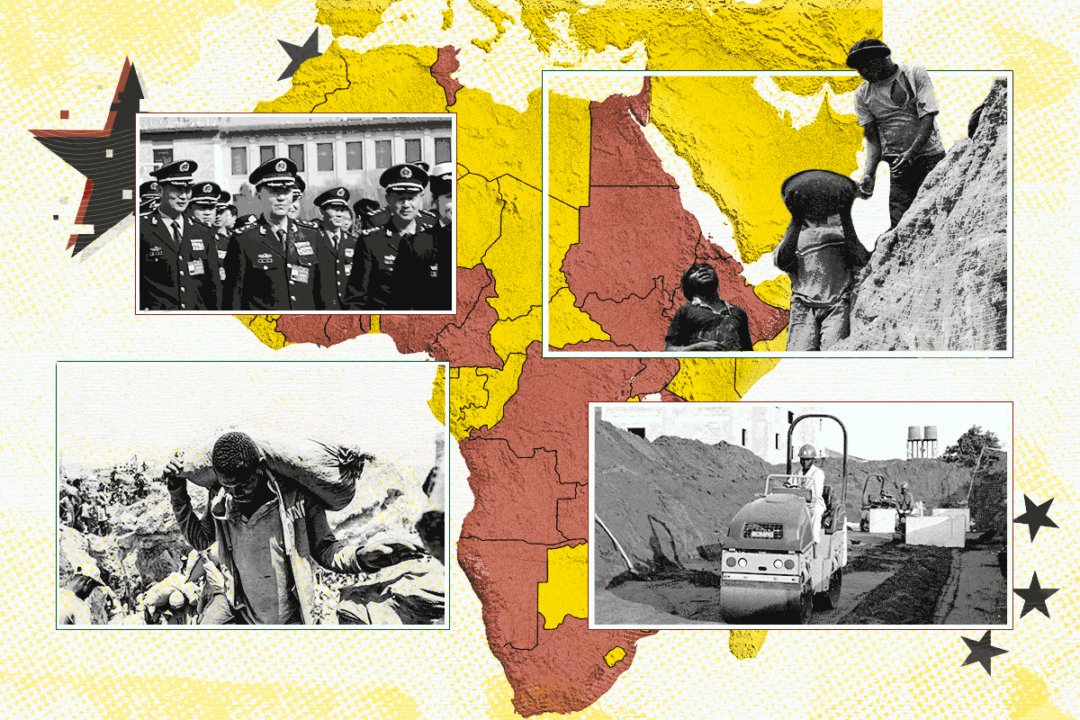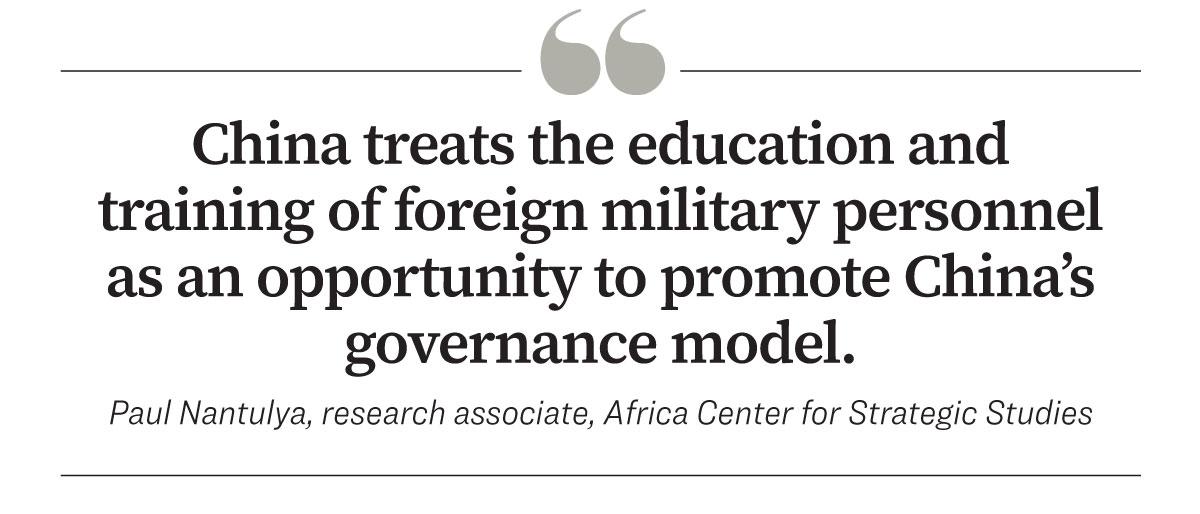China’s influence in and over the lives of Africa’s 1.5 billion people is now so extensive that it permeates almost all aspects of African societies.
The communist regime’s presence is evident across the continent in various economic sectors, including agriculture, natural resources, trade, and logistics. Chinese companies have significant investments in manufacturing, services, and real estate.
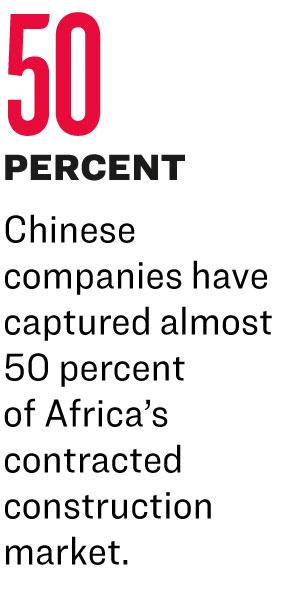
The Chinese Communist Party (CCP) began building connections with Africa in the 1950s by supporting the continent’s liberation movements with arms, funding, and military and political education.
This historical foundation has allowed China to integrate itself into modern African economies. Many of today’s African leaders have either received training in China or have fathers who did so.
China’s interest in extracting minerals often leads to partnerships with authoritarian regimes in Africa. For example, in Zimbabwe, where the ZANU-PF government faces accusations of corruption and violence against its adversaries, China owns numerous precious metals and mineral mines.
The CCP is also expanding its military presence in Africa, conducting regular training exercises with African armies and navies.
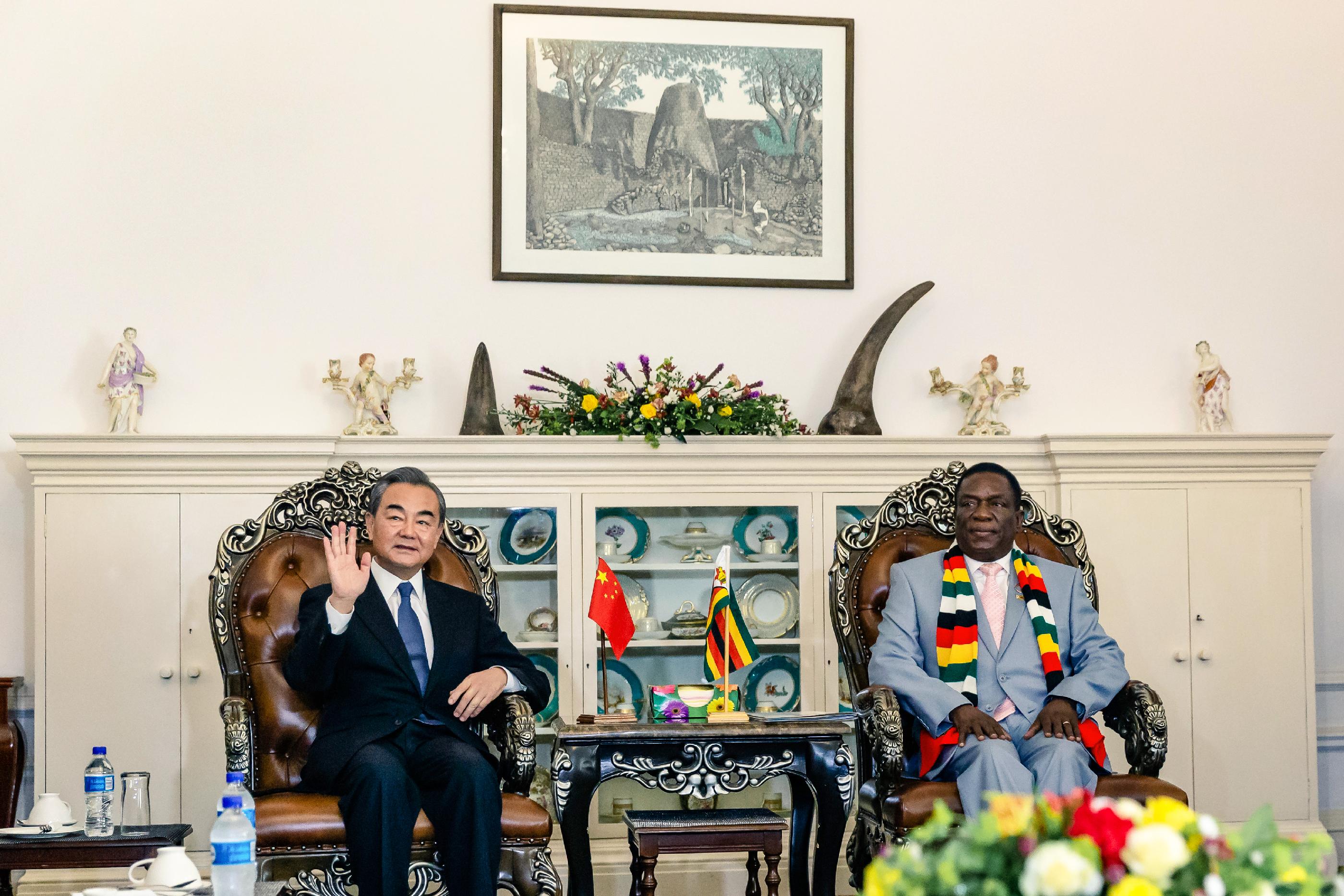
In August 2023, the 96th anniversary of the founding of the Chinese People’s Liberation Army (PLA) was celebrated across almost every African nation.
China has established 61 Confucius Institutes in 46 African countries, educational centers aimed at countering Western democratic ideals and promoting Chinese culture and language in Africa.
Beijing has established a “Leadership School” in Tanzania, where party officials instruct African leaders on non-democratic governance practices.
“China views the education and training of foreign military personnel as an opportunity to promote its governance model, develop closer relationships with foreign militaries and governments, and foster a shared understanding of security,” said Paul Nantulya, a research associate at the Africa Center for Strategic Studies.
“Many graduates of these programs go on to hold key positions in their countries’ militaries and governments. Thousands of African officers participate in such training annually.”
Xi Jinping’s regime is encouraging major African economies like South Africa, Nigeria, and Ethiopia to transition away from using the US dollar as a trade currency and adopt the Chinese currency.
China’s extensive infrastructure projects in Africa over the past two decades, through its Belt-and-Road Initiative (BRI), have facilitated its access to rare-earth minerals crucial for its economic expansion.
China began investing in Africa in 2013 with the launch of the BRI.
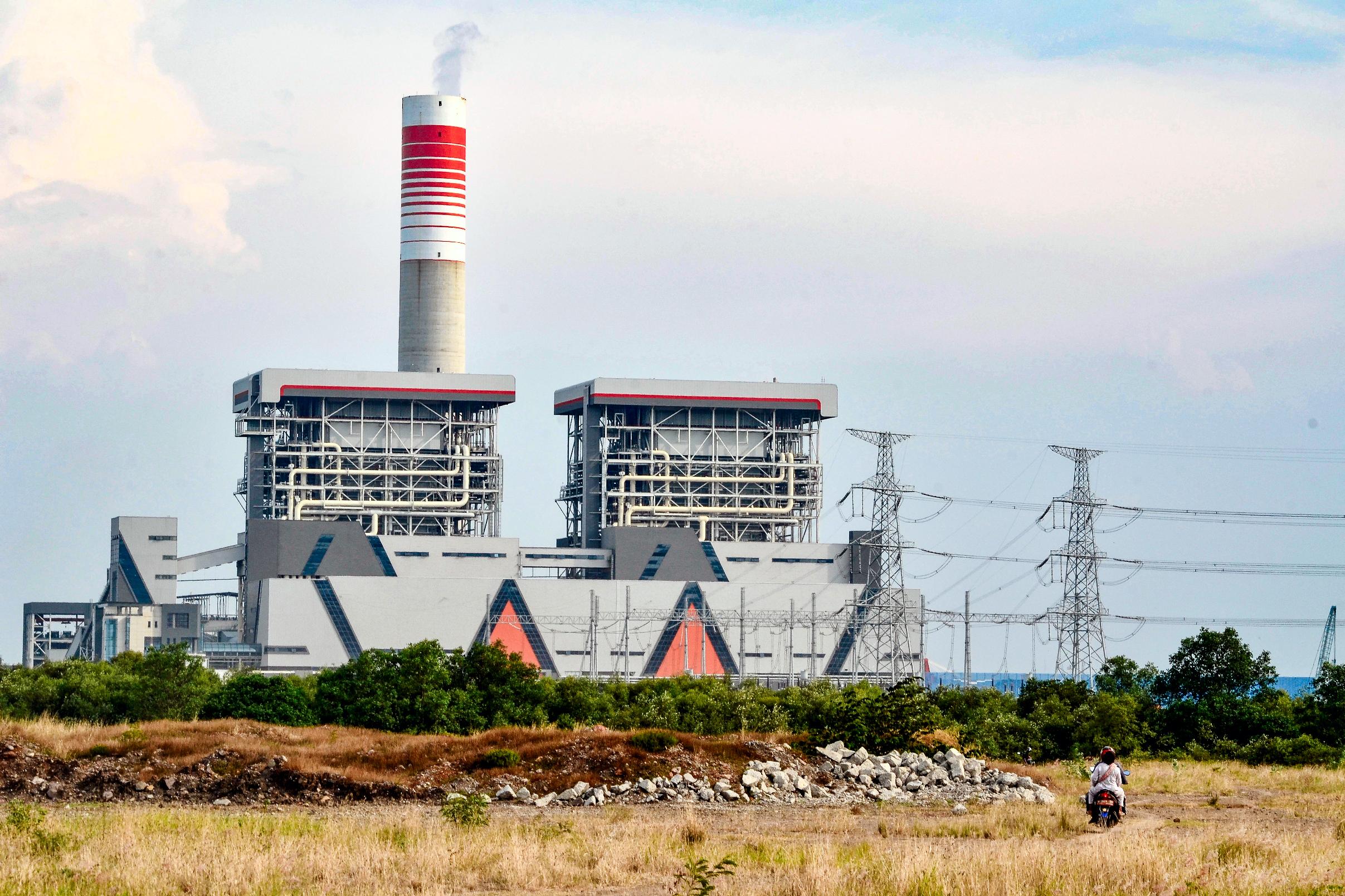
The Java 7 power plant in Serang, Banten, on Oct. 29, 2020. China plans to fund dozens of foreign coal plants from Zimbabwe to Indonesia. (Ronald Siagian/AFP via Getty Images)
Overall, the debate over China’s military engagement in Africa continues, with some seeing it as a necessary step for security and others expressing concerns about potential motives and consequences. Nantulya stated that China views its training of African police and soldiers as an opportunity to promote its governance model and strengthen ties with Africa’s ruling political parties. He explained that China openly uses its military to maintain power, as evidenced by its military political work concept, which involves shaping the civilian environment to achieve political, ideological, and military goals set by the CCP. This approach is being exported to Africa through political-military education programs for African security forces.
The Nanjing Army Command College has produced alumni who have held top positions in African countries, including defense chiefs, defense ministers, and former presidents. Many of these leaders have been criticized for their lack of commitment to democratic principles. The training provided by China to African military officers differs from that of Western forces in that China focuses on training soldiers to suppress and oppose their own people, rather than confronting external threats.
China’s approach of indoctrinating military members with CCP values and ensuring absolute party control over the military aligns with its strategy of retaining power. This contrasts with the military structures outlined in most African constitutions. Despite the decline of democracy in Africa, some countries are still seeking training opportunities from China due to its extensive offerings. The appeal of China’s party-army model has grown among African parties focused on regime survival.
It is suggested that the West should take advantage of China’s shortcomings in Africa, such as its focus on resource extraction rather than investing in value-added industries or research centers. By capitalizing on these missteps, Western countries could potentially strengthen their relationships with African nations. . emphasized that Western countries can gain an advantage over competition from China by capitalizing on the shortcomings in Chinese investment and offering a more appealing partnership model. Additionally, there is a growing anti-Chinese sentiment in Africa due to allegations of Beijing’s companies mistreating workers and colluding with criminals. Security analysts have reported that Chinese mining firms are working with organized crime groups and corrupt officials to run illegal mines in Africa and steal valuable minerals. This has led to tensions between Beijing and some African governments.
Experts suggest that China’s metals industry relies on imported minerals and is turning to criminal groups to obtain extra metals illegally. Some governments allied with China are now taking action against these alleged abuses. For example, Nigeria has been cracking down on Chinese mining companies, with arrests made for illegal mining activities. There are reports of Chinese firms making deals with terrorist groups to protect their illegal mines.
China’s interest in acquiring lithium, a crucial metal for renewable energy products, has led to a focus on African lithium mines. However, investigations have revealed concerns about corruption and environmental issues in the continent’s lithium mining sector. Zimbabwe, for instance, has seen a significant increase in lithium exports due to Chinese-driven mining projects.
In conclusion, there are growing concerns about Chinese investment practices in Africa, with calls for Western countries to leverage these issues to strengthen their partnerships with African nations. Soda reported that Chinese companies such as Zhejiang Huayou Cobalt, Sinomine Resource Group, Chengxin Lithium Group, Yahua Group, and Canmax Technologies had invested over $1 billion since 2021 in acquiring and developing lithium projects in Zimbabwe. These companies had established processing factories and were exporting lithium concentrates to China for further refining.
A Global Witness investigation in Zimbabwe focused on the Sandawana mine, which is owned by companies associated with the ruling ZANU-PF party, a close ally of the Chinese Communist Party. ZANU-PF has been in power in Zimbabwe since 1980, facing accusations of human rights abuses and economic mismanagement.
Despite an official ban on unprocessed lithium exports, the politically connected Sandawana mine was exempted, leading to the shipment of large quantities of ore to China. Similar issues were reported in Namibia, where a Chinese firm was accused of mistreating workers and engaging in corrupt practices.
In the Democratic Republic of Congo (DRC), Chinese companies were linked to corruption cases in lithium mining, including the Manono deposit, which raised concerns about illicit financial activities. Despite these challenges, African governments continue to engage with Chinese investors due to the overall positive impact of Chinese investments in infrastructure and economic development. Please rewrite this sentence. Please rewrite the following sentence to make it more concise:
“The company is currently in the process of conducting market research to gather information on consumer preferences.”
“The company is conducting market research to gather consumer preference data.” Can you please rewrite this sentence? Please rephrase this sentence. Please rewrite this sentence. Please rewrite the sentence. Please rewrite the given statement.
Source link


